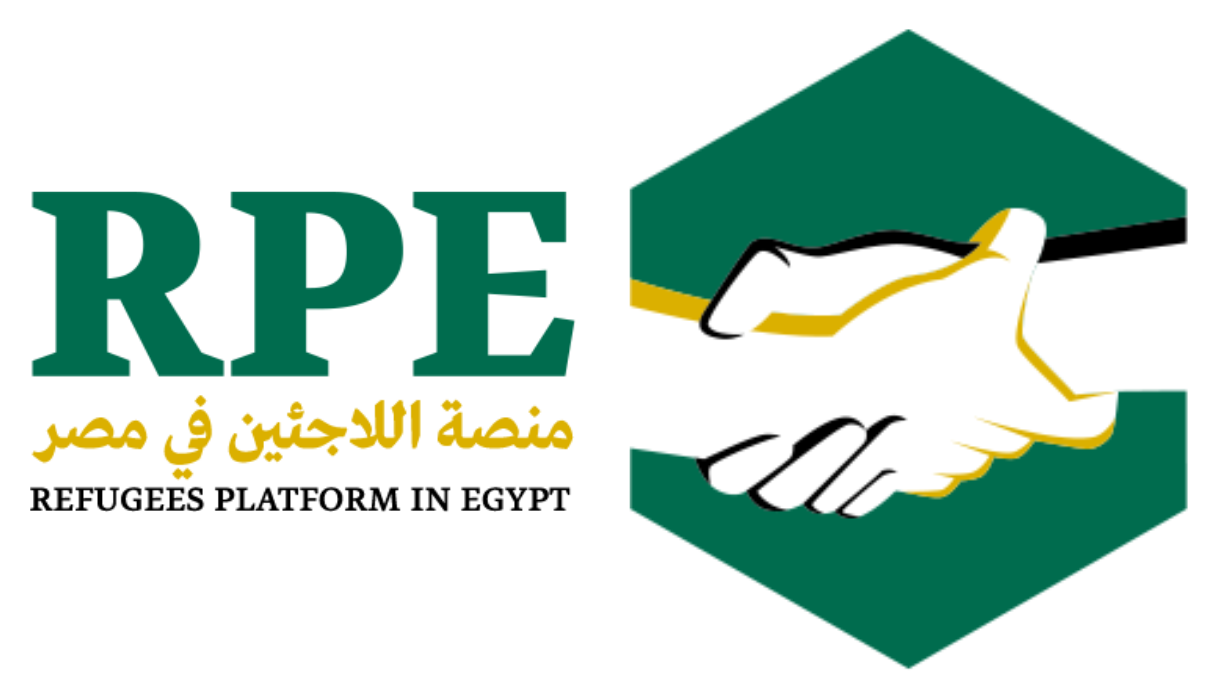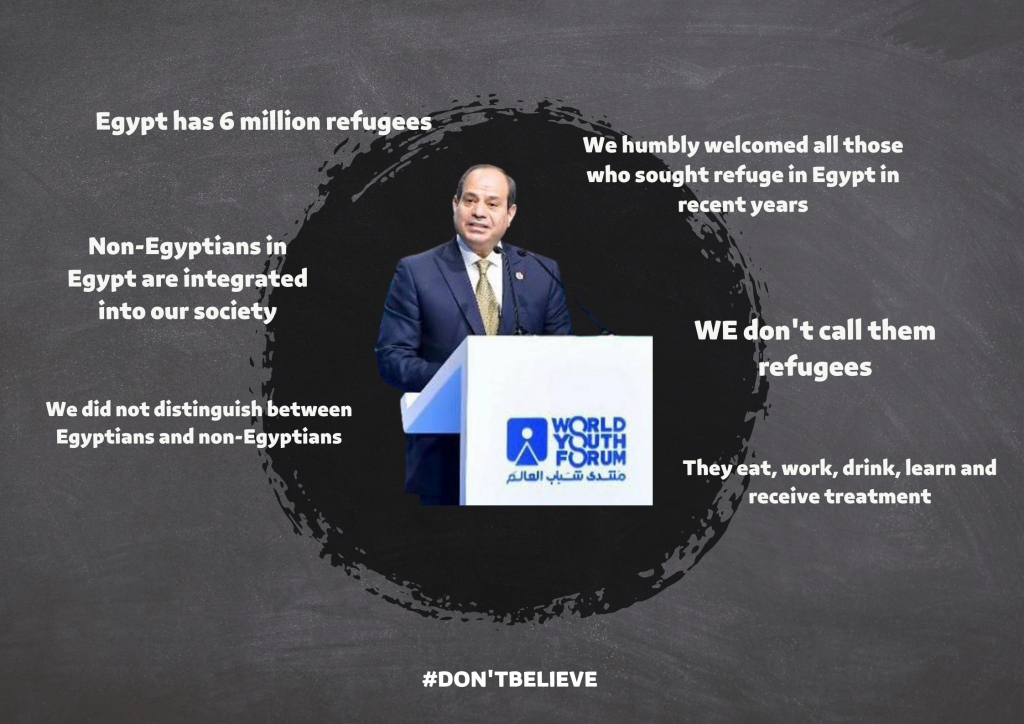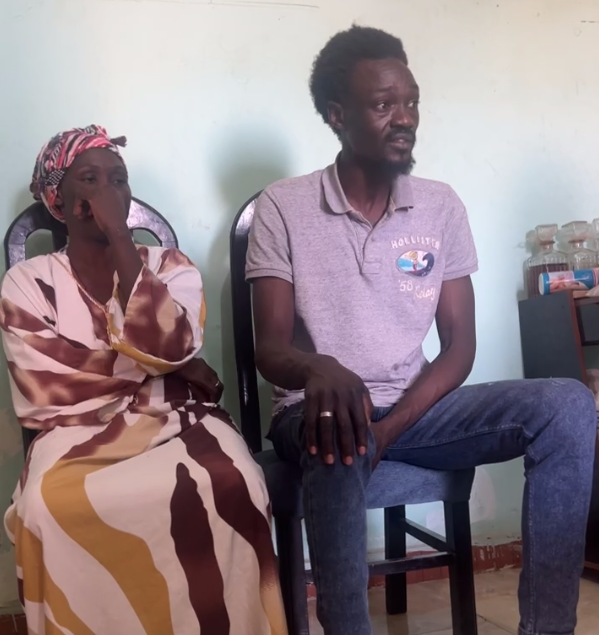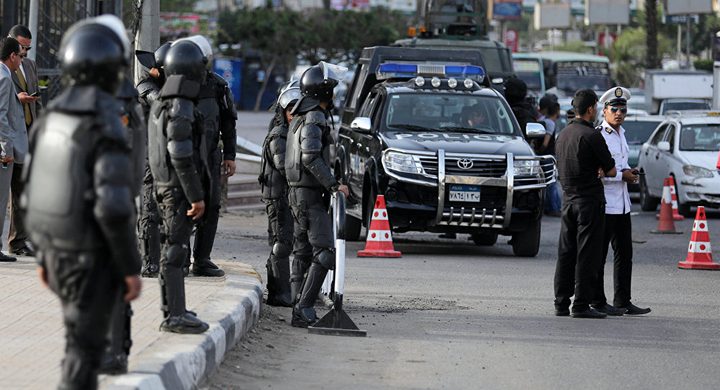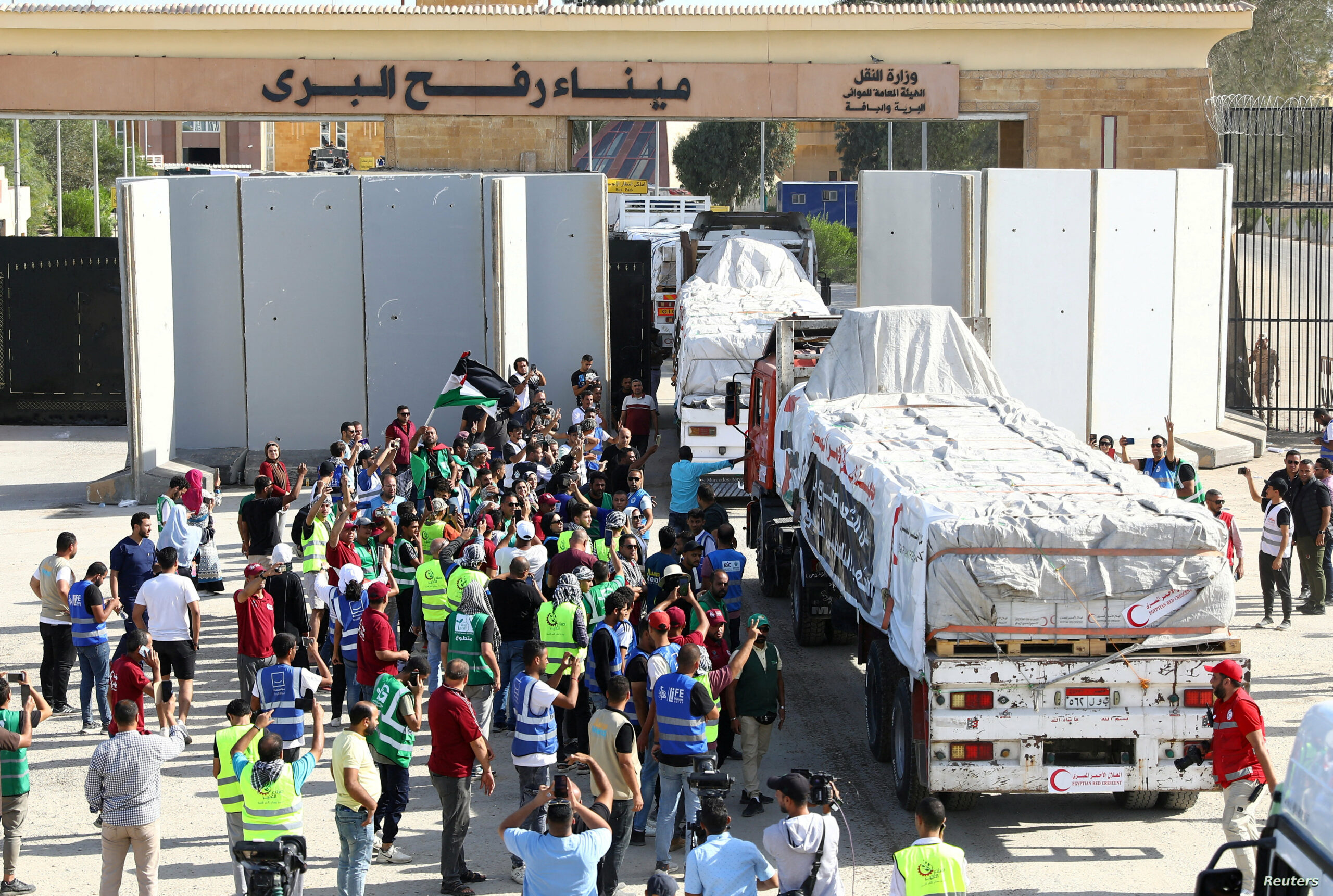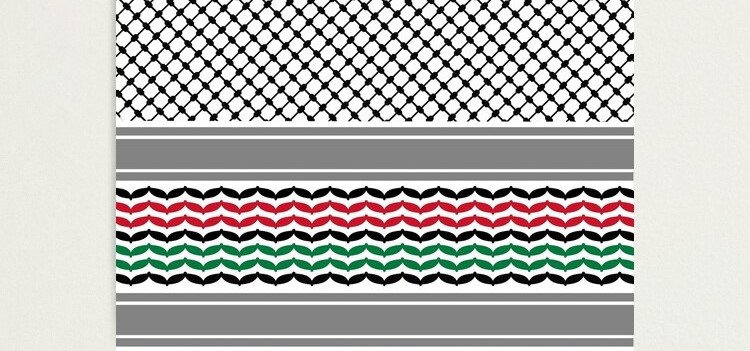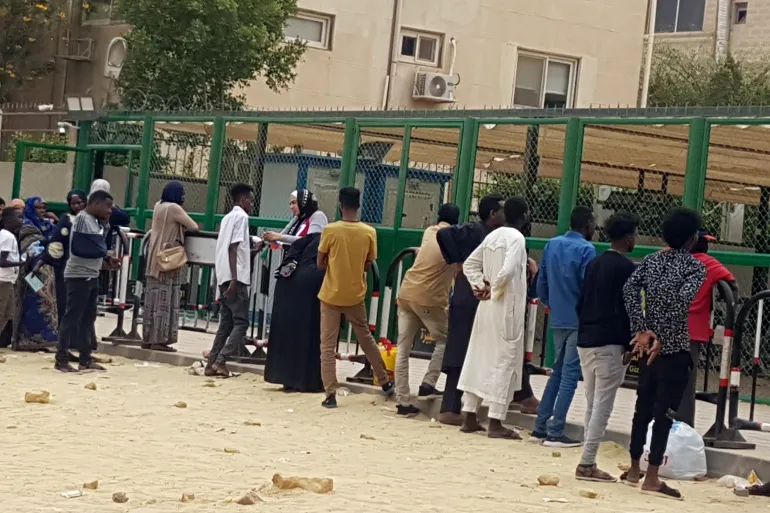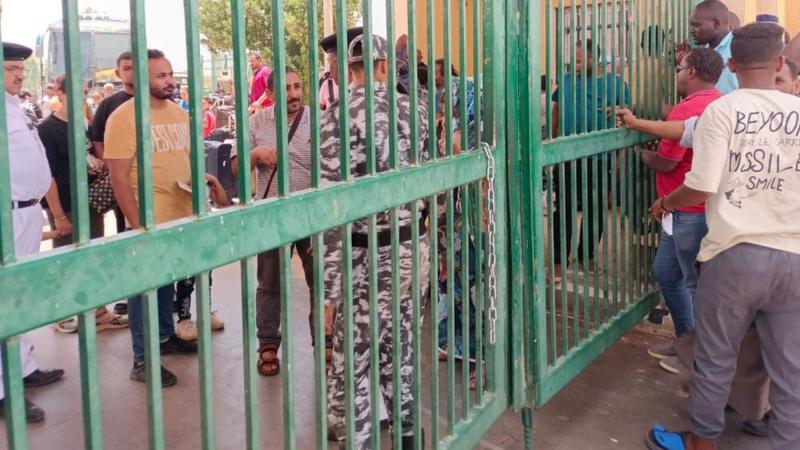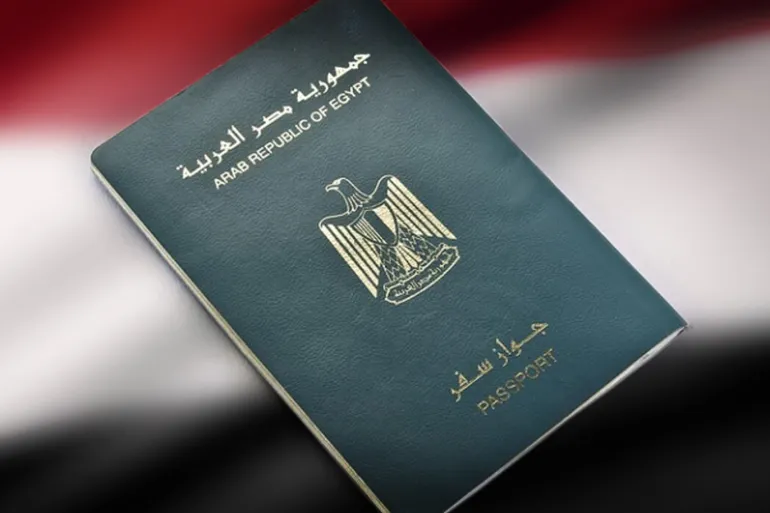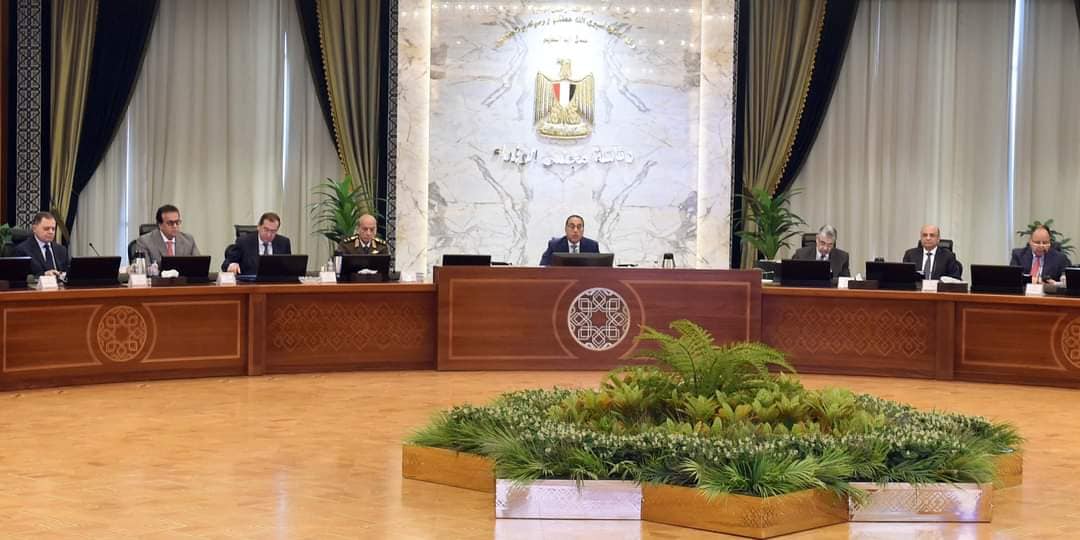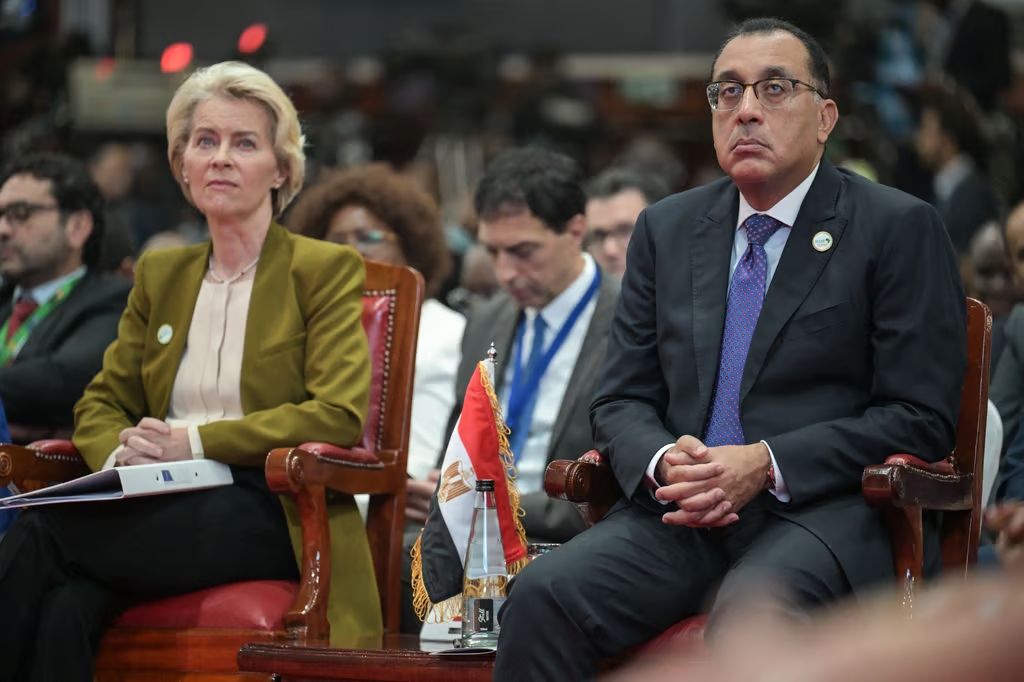During the Human Rights Council simulation session at the “World Youth Forum” in Sharm El-Sheikh, last Tuesday, we heard President Abdel Fattah El-Sisi’s talk about the refugee situation in Egypt, during his response to a request submitted by one of the participants about the human rights situation in Egypt, beginning with his statement that “The reality is not like that”. During his response, he explained: “We did not distinguish between Egyptians and non-Egyptians, whom we do not describe as refugees. They are our guests and our youth. Egypt has 6 million people, some of whom came to it as a result of conflicts or limited capabilities and the extent of poverty in countries close to us… we do not prevent them nor did we make them sit in camps. I am not talking about 5,000 or 10,000 people, our friends in Europe refuse to receive them. I am talking about 6 million people. There are no refugee camps in Egypt.”
El-Sisi added, “The non-Egyptians who are in Egypt are integrated into our society, they eat, work, drink, learn and receive treatment. our capabilities are not as advanced as the rich countries, but we made available what we have without a lot of talking, and we didn’t allow ourselves to remain a crossing for them to the unknown and they meet a harsh fate in the Mediterranean as they migrate to Europe.”
President El-Sisi ended his speech by saying, “Despite our difficult economic conditions, we have humbly welcomed all those who sought refuge in Egypt in recent years.”
By reviewing this statement, we saw that it needs correction and clarification so as not to mislead the followers and follow-ups. As the president said at the beginning of his speech, “the reality is not so.” Let us refute and discuss the points he spoke about regarding the refugee situation, to know what the “reality of refugees in Egypt” is.
- On the term “refugees,” which the president refuses to use, and the numbers of refugees that the Egyptian government has repeatedly determined:
Speaking about refugees, the President said, “We do not describe them as refugees,” and here we would like to clarify that the term “refugee” is neither a slander nor a defect makes the President refrains from using it in an international event and in a session that talks about human rights. The term “refugee” is very important because it defines a specific legal status – in international law and the constitution – this title entails the rights, duties and obligations of states for asylum seekers and refugees.
Considering that the term refugee is a bad name and should be avoided is a racist act against refugees in the world and an attempt to evade established international obligations, We see that President Sisi used the term to express the situation he is talking about when he said in the same session, “Everyone who has taken refuge in Egypt.”
In this regard, we would like to clarify that Egypt is one of the signatories to the 1951 Refugee Convention and its 1967 Protocol, in addition to the 1969 Organization of African Unity agreement that governs the specific aspects of refugee problems in Africa. UNHCR in Egypt implements registration, documentation and refugee status determination processes, according to the memorandum of understanding signed with the Egyptian government in 1954. The Egyptian Constitution issued in 2014 stipulates in Article 93 of it that “the state is committed to the international conventions, covenants and charters of human rights ratified by Egypt, It shall have the force of law after its publication in accordance with the prescribed conditions”.
The 1951 Convention clearly defines a refugee in its first article as “a person who is outside a country of nationality or habitual residence, because of a well-founded fear of being persecuted for reasons of race, religion, nationality, membership of a particular social group, or political opinion.” Because of that fear, the person is unable or unwilling to seek the protection of that country or return to it for fear of persecution”.
Therefore, it is not correct for the president to evade clarifying the conditions of the millions of people he is talking about, especially since the president used the same term in the same meeting and in other official meetings, and that he made it clear that he was talking about people who fled their countries because of wars, conflicts or the inhumane conditions they face.
As for the numbers that the President is talking about, we make it clear that the process of registering refugees and asylum seekers in Egypt is done through the UNHCR only, based on the memorandum of understanding concluded between the Egyptian government and the UNHCR in 1954, and accordingly, it is the body authorized to announce numbers and in its latest statistical report on November 30, 2021, the UNHCR announced that there are 269,826 refugees and asylum-seekers from 63 countries (half of them are from Syria) in Egypt.
It is not the first time that President El-Sisi or a high-ranking Egyptian official has spoken at a regional or international event about the number of refugees in Egypt, mentioning the numbers in millions without clarifying the statistical method used by the Egyptian government to determine the number of refugees. On November 15 2021, Egyptian Foreign Minister Sameh Shoukry stated during a meeting with the European Union Commissioner for Internal Affairs, “Ylva Johansson” that Egypt “hosts more than 6 million refugees and migrants who enjoy all the services provided to the Egyptian citizen.” And the Ministry of Foreign Affairs mentioned the same number last December on the occasion of the celebration of International Day for the immigrant.
These mentioned numbers contradict reality and the truth, and if the Egyptian authorities follow a census approach in which they count all holders of nationalities whom refugees come from, this census loses its credibility, because the millions that officials are talking about have their official residence in Egypt for other reasons related to marriage or studying, working, investing, etc., which puts them under the definition of “foreign,” which makes all their legal procedures take place in a different context and without the rights of refugees, and also that they have to pay much higher expenses than what is usually required of Egyptians to complete the procedures, transactions and services they need.
- About not preventing refugees from entering Egyptian territory
During his speech, the president indicated that refugees were not prevented from entering Egypt. This talk is false, as Egypt prevents some nationalities from entering its lands in a regular manner. These nationalities are usually the ones from countries which asylum seekers and refugees come.
Since the end of the year 2013, the Egyptian government decided not to welcome Syrian nationality holders without a prior entry visa and obtaining it is almost impossible, which easily places them under the hands of fraudsters, or enter Egypt irregularly through the southern border with Sudan, a trip that offered and exposes many refugees to the risk of kidnapping, assault, death on the road, arbitrary detention and imprisonment for long periods, holders of Yemeni nationality can only come to Egypt with a “study or treatment” entry visa, and after the visa period expires, they are not allowed to reside in Egypt, unable to register with the UNHCR, and also unable to obtain residence permits. Holders of Eritrean citizenship cannot enter Egypt in any legal manner, and other nationalities that Egypt prevents them from entering legally in one way or another.
According to the data of the Egyptian border guards, “unofficial immigration attempts were thwarted” for more than 90,000 migrants and asylum seekers of different nationalities from 2016 to 2021.
The official data do not talk about the nature of the measures being taken against these thousands of women, children, adults and patients who are arrested daily at the Egyptian borders, or any information or classifications about them, referring to what was documented by the Refugees Platform in Egypt and other observers. In this case, they are arbitrarily detained for long periods, sometimes up to years, such as what happened with the Eritrean refugees “Alem Tesfay Abraham and Kibrom Adhanom” who have been detained for more than seven and nine years and are still arbitrarily detained in Al-Qanater prison.
According to what was stated by community leaders to the Refugees Platform in Egypt, there are more than 200 detainees from the State of Eritrea due to the irregular entry into Egypt in the Aswan Governorate, including forty-four children, who have been detained since 2019 in various detention facilities in the Red Sea and Aswan governorates. They were not able to request asylum and were held in inhumane and very bad conditions and were deprived of their rights as detainees, while the Refugees Platform has information about detainees of other nationalities in the Red Sea, Salloum and Marsa Matrouh governorates due to attempting to enter or exit Egypt irregularly.
Read more in the report: (The Crime: Seeking Asylum in Egypt – Case Report on Arbitrary Detention and Forced Deportation of Eritrean Asylum Seekers)
On the legislative side, although the 1951 United Nations Convention Relating to the Status of Refugees prohibits the punishment of refugees for attempting to enter irregularly and although Law No. 82 of 2016 exempts a smuggled migrant from criminal responsibility, refugees who are arrested while trying to enter Egypt at the borders or the areas adjacent to the border irregularly, they are brought to the military court based on Decision No. 444 issued by President Al-Sisi in 2014 defining the areas adjacent to the borders as military zones, which puts those arrested under military law even though they are civilians and that exceptional trials may not be used against refugees, and after the military trial is completed, the detainees’ files are referred to the security services – the competent administrative authority – to consider whether they allow them to enter Egypt or not, after a period of detention that often exceeds months. In the last two years, the decision is often rejected and they are deported.
During the period of detention, detainees are not able to submit a request for asylum – in most cases – and neither of them obtains their legal rights to know the nature of the charges against him and the reason for his detention.
The conditions of detention are very bad, as the food and drink provided is not enough and they are not allowed to stand in the sun, and they are deprived of any kind of medical care for prisoners, which is in violation of all treaties and covenants that Egypt has signed and ratified and is considered a grave breach of the international obligations established in these Case.
Last year, between October and the end of December only, the Egyptian authorities forcibly deported 40 Eritrean asylum-seekers to Eritrea on three separate flights, including children and patients, which was criticized by the United Nations Human Rights Council and many local and international human rights organizations.
- “There are no refugee camps in Egypt.” However, are the refugees really integrated into Egyptian society and receiving the services that the president talked about?:
Speaking about the non-Egyptians hosted by Egypt, the president said that refugees do not live in camps like other countries, explaining: “We did not distinguish between Egyptians and non-Egyptians, non-Egyptians who are in Egypt integrated into our society, eating, working, drinking, learning and receiving treatment, our capabilities are not as advanced as the rich countries, but we made available what we have without a lot of talking.”
Let’s start with the aspect of “non-discrimination” between Egyptians and non-Egyptians. It is not possible in any way for a government official to say a similar statement, since there is a clear and apparent distinction for every observer, starting with the legal procedures that require every petitioner and refugee to issue a residence permit every three or six months. This permit requires the presence of a UNHCR registration card and also the issuance of the reference number from the offices of the UNHCR or its partners (Caritas) and afterwards, getting an appointment to obtain permits from the General Directorate of Passports, Immigration and Nationality. This process takes about six months or more. Those wishing to renew residence permits also incur financial costs each time they go to the office responsible for each procedural stage.
In the absence of a residence permit, the refugee cannot obtain any of the services if it comes with large financial costs such as postgraduate studies. Refugees are also subjected to arbitrary arrest and detention without legal justification that may extend for weeks, which is what happened to thousands of refugees of all nationalities when the UNHCR closed its offices for 11 months during the COVID-19 lockdown.
Which people the president is talking about that they receive all this support from the Egyptian state, if it is about the millions of people he mentioned, then they are mostly treated as “foreigners” in basic procedures and services such as education, health, work and others, which requires them to pay fees for these services, which are high costs, whether these services are related to housing, work, investment or study in basic, university or post-graduate education.
And if the president is talking about refugees registered with the UNHCR, they do not receive any assistance from the Egyptian government, but some nationalities are excluded from some expenses for education and health by special decisions and not as a general situation. In fact and reality, most refugees live in miserable conditions in poor neighbourhoods In major cities such as Cairo and Alexandria. It is not the Egyptian state that provides them with support, but the UNHCR and other relief organizations. Due to the lack of resources, economic challenges, austerity policies, the lifting of subsidies, and the Corona pandemic, the provision of aid are now very limited and the refugees are facing double the suffering, as the UN High Commissioner has previously explained over the past years. Some European countries also provide direct support grants to the Egyptian government to raise the efficiency of some schools, hospitals and other services in order that these services can withstand the presence of refugees.
Asylum seekers and refugees cannot sign or document work contracts, which makes them work irregularly with low salaries and without any kind of legal protection towards business owners, which exposes them to extortion, exploitation and abuse without protection in many cases, and in terms of education, the most of those registered cannot pay the expenses for their children in the basic education stages without obtaining educational grants from relief organizations, which are not enough. At the university and postgraduate levels, refugees and asylum seekers are treated as foreigners, which requires very large tuition fees in the hard currency according to each college and university.
In a warning by Filippo Grandi, the UN High Commissioner for Refugees, in February 2019, said: “I am deeply troubled by the fact that eight out of 10 refugees in Egypt are living in desperate humanitarian conditions. They cannot meet even their most basic needs. Putting bread on the table is a daily challenge – These refugees require timely and adequate humanitarian assistance. Yet, right now we are unable to provide them with the bare essentials or maintain our core refugee protection programmes in this country”.
The difficulty of daily life has increased in the past two years due to the consequences and effects of the Corona pandemic on economic life, as thousands of people left their jobs and many of them lost housing due to their inability to pay the monthly rent.
But if Mr President is talking about unregistered asylum seekers, in fact, they do not receive any kind of support in any way, whether from the Egyptian government or relief organizations. On the contrary, they are not considered to have a real presence in everyone’s accounts or any kind of protection, and if any of them were arrested and held for long periods in poor conditions.
In addition to the language barriers that non-Arabic speaking refugees face, which limit their access to formal education and further contribute to their marginalization.
We would like to clarify that although Egypt is a signatory to many agreements that guarantee the rights of refugees internationally and regionally, and despite the fact that the Egyptian Constitution provides the right of asylum in Article 91 of it, which states that “the state grants the right of political asylum to every foreigner who has been persecuted because of defending the interests of peoples, human rights, peace or justice. The extradition of political refugees is prohibited, all according to the law.” So far, there is no local law in Egypt that regulates the refugees’ situations, which makes them always under changing conditions with changing government decisions, which makes them always in an unstable situation and hinders the integration process within the Egyptian society.
All of the above are basic obstacles to anyone’s integration into society, and with that comes the high frequency of accusations and hate speech against refugees and the claim that they “take Egyptians’ jobs and money.” The Egyptian government does not protect refugees from racism in any of its forms with clear and strict laws.
Incidents of harassment, discrimination, bullying, racism and attacks against African refugees on the basis of colour have alarmingly increased in the last two years. Although there are indications that Egypt has begun to take a positive reaction to this alarming violent escalation, and even after it issued judicial rulings in racist cases under the name of “bullying” in cases that had the best chance to become public opinion cases, there are hundreds of reports and cases that were moved by refugees and asylum seekers about their exposure to racist incidents, physical and sexual assaults. No measures have been taken regarding these reports or investigations, and in some cases, police departments refuse to issue reports for refugees and asylum seekers, and there is still no level at the Legislation and at the level of practice of real protection measures.
The Geneva Council for Rights and Freedoms had expressed its concern about the recurring incidents of violence and discrimination against African refugees in Egypt, in a statement published in May 2021, when a group of young men and a woman kidnapped and tortured a 14-year-old boy, and two girls, 16 and 17, all refugees from South Sudan And sexually and physically assaulted them in the Ain Shams area. The Refugees Platform in Egypt at the time called on the authorities to provide real and complete protection for victims, survivors and witnesses in cases of racism, violence and torture.
Reverend Marco Deng, a local leader in the refugee community from South Sudan, described the sexual and physical attacks and violence against refugees in Egypt, to “Mada Masr” when the incident occurred. “We are in this every day, it’s like breakfast, lunch and dinner, we must hear about one of the tuk-tuk riders hitting a Sudanese woman or thugs who beat a Sudanese woman. Sexual assaults, racism and theft, and the police department refuse to make reports, without residency, telling you to give a letter from the UN Commission or Did you get a letter from the embassy, or someone at the door says to you, yalla, yalla, outside, and if you speak too much, they will insult you or imprison you. What can we do? The refugees are forced to sit here, and the UNHCR does nothing.”
On June 16, 2020, three Egyptians assaulted the 15-year-old Sudanese child, “Nael Mohamed Omar”, in the Imbaba airport area in Cairo, and stole his belongings and a sum of money in his possession. They insulted him and attacked him with racist words, and they filmed the incident and published it on the Internet.
In October 2020, a Sudanese girl was subjected to mass assault and harassment by Egyptian youths in Nasr City. The security forces arrested some of the accused in the incident. In the same month, the Sudanese child “Mohamed Hassan” was killed by an Egyptian in “Masaken Othman” in Giza Governorate, against the background of a financial dispute with his father.
These are just a few famous examples of the many violations that occur daily against refugees. The bulk of these violations is borne by the most vulnerable groups of women and children. Laurent de Boeck, Chief of the International Organization for Migration in Egypt, told Reuters in October 2019 “Complaints of assaults jumped from two to three per week to seven complaints per week.” This percentage has become insanely high over the past two years.
- “Refugees are not a burden, Mr President.”:
The president also said, “They eat, work, drink, learn and receive treatment.” It is not acceptable for a person’s food, drink and treatment, especially in the case of asylum, to be a gift or a grant. Rather, it is a right of the refugee, a duty and an obligation on the host country, in addition to other obligations recognized by international treaties.
Considering refugees a burden is an explicit racist act against them, as it contradicts reality and the truth, as despite the increase in the number of Syrians coming to Egypt (the largest percentage of registered refugees, and the largest number of arrivals to Egypt, the Egyptian government talks about), especially after the country entered the stage of war and civilians were targeted in the wake of the Syrian revolution, this was not a burden on the Egyptian economy, on the contrary. The Syrians, through their investment and business, contributed to revitalizing the Egyptian economy, creating job opportunities for Syrians, Egyptians and others, and helping to attract foreign investments.
ILO, WFP and the UNDP showed in 2017 that the volume of Syrian investments in Egypt is estimated at $800 million since the start of the Syrian civil war in 2011. In addition to the American Chamber of Commerce in Egypt in 2019 stated that there are more than 3,300 Syrian companies registered, with 30,000 plus Syrian investors operating in Egypt since 2011. It is estimated that there are 500 Syrian workshops and small factories operating informally in “Obour Industrial City”, where they have rented ready-to-operate spaces in the industrial zone. It has provided them jobs and created job opportunities for both Syrians and Egyptians.
In 2019, the Egyptian Parliament member, “Tariq Metwally”, said, “The presence of Syrians in Egypt brought a lot of money and investments in various fields to Egypt, and the number of Syrian investors is estimated at 30,000, which contributed to revitalizing the economy, and the latest state of competition between products, pouring In the interest of the Egyptian citizen by providing high-quality products at competitive prices”.
- Suppress freedom of movement, protect immigrants? Or in defense of European borders? Was Egypt really able to suppress the immigration movement?:
In the president’s talk about irregular migration, he explained, “We didn’t allow ourselves to remain a crossing for them to the unknown, and they will meet a cruel fate in the Mediterranean during their migration to Europe.”
From the end of 2016 until now, Egypt has taken unconstitutional measures that violate its international obligations to respect human rights in order to suppress the migration moves through it. Among these measures are the arrest of more than ninety thousand migrants and asylum seekers during the period from 2016 to 2021. As we mentioned above, they are held in illegal and inhumane conditions for long periods without the ability to seek asylum.
The negligence of saving refugees and migrants is also clearly demonstrated by the incident of the Rasheed boat on September 21, 2016, when a migrant boat sank less than 12 kilometres inside the Egyptian territorial waters opposite the coastal city of Rashid and the failure of the coast guard to carry out rescue operations or even allow fishermen to carry out rescue operations until more than 200 people drowned, most of them children, the largest number of them are Egyptians, in addition to refugees of other nationalities.
Among this was also what was clarified by the documents leaked through the investigative organisation “DISCLOSE” about the secret military operation “SIRLI” between Egypt and France in the western desert of Egypt. The documents revealed that more than forty thousand people were targeted and killed by airstrikes during the operation, and it turned out that they were civilians and did not belong to armed groups. The documents also revealed that the Egyptian government’s priorities during these operations were combating smuggling and immigration operations.
These violations have been committed with full financial and political support from the European Union and the governments of some European countries over the past years, not in order to protect refugees and migrants from the dangers of unofficial migration, but in order to implement the European agenda to extend the limits of prevention and keep immigrants outside European borders.
We do not really see that the Egyptian methodology based on suppressing the migration movement through violations and the lack of real accountability has actually succeeded. After the Egyptian authorities stopped direct migration through the Mediterranean since 2016, and with the difficult conditions experienced by migrants inside the country, Egypt turned to “A refugee trap” that can only be exited by one way, which is to travel irregularly to Libya.
And since migration continues, its factors and causes, some of which the president mentioned in his speech, still Egyptians and refugees, including many young people, continue to migrate irregularly to Europe through Libya, and we consider this result nothing but a European investment in violations in Egypt against Egyptians and against refugees.
We were hoping: From The President to talk about refugees in a different way through a perspective that depends on the reality that he cares about a lot and which can be known from official facts and figures and through what human rights and press institutions publish, we were waiting for Mr President to announce the inclusion of the National Human Rights Strategy that was launched Last year, some provisions included addressing violations and legislative shortcomings against refugees and migrants.
We expected that the president would be fairer about the situation of the refugees and that he would consider them, as he really said, “our youth” and not use them as political cards and present the refugee situation in Egypt as a model for receiving refugees and respecting their rights.
We thank the President for giving this opportunity to clarify the facts to the public and listeners from Egypt and other countries and to do justice to the refugees by raising the voice of truth and reality about their situation.
